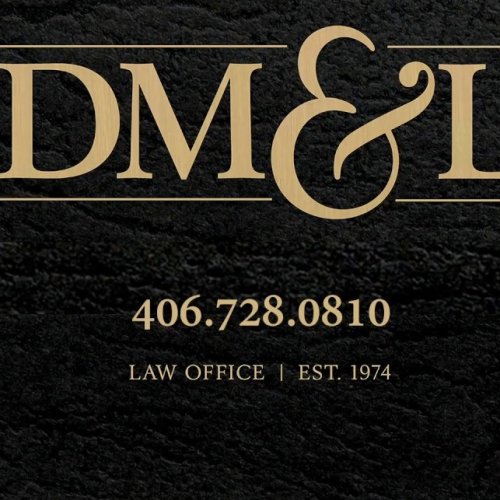Best Child Custody Lawyers in Hamilton
Share your needs with us, get contacted by law firms.
Free. Takes 2 min.
Free Guide to Hiring a Family Lawyer
List of the best lawyers in Hamilton, United States
About Child Custody Law in Hamilton, United States
Child custody law determines who gets principal responsibility for the children, including where the children will live and who will make important decisions about their healthcare, education, and welfare. In Hamilton, as with most states, child custody laws aim to protect the best interests of the child. Should parents divorce or separate, a court will decide the physical (where the child lives) and legal (who makes decisions for the child) custody of a child. There are different types of custody i.e., shared, sole and joint, which have varying implications.
Why You May Need a Lawyer
Disputes concerning child custody can be highly emotional and legally complex. You may need a lawyer if you're going through a divorce or separation and there are disagreements about who should have custody of the child. It's also critical to engage a child custody lawyer if your child’s safety is a concern. They can help you understand your rights and legal options, represent you in court, and advocate for the best interest of your child.
Local Laws Overview
In Hamilton, the child's best interest is always a priority in custody decisions. Courts will consider factors such as the emotional ties between parents and the child, the parent's ability to provide a stable living situation, and any history of abuse or neglect. Joint custody may be granted if it is found to be in the child's best interest. This is where both parents share the right and responsibility to make decisions about the child’s upbringing. In sole custody, only one parent has the right to make major decisions on the child's behalf.
Frequently Asked Questions
1. How is child custody determined in Hamilton?
Child custody is determined based on the best interests of the child. The court looks into factors such as the relationship of the child with each parent, the health and lifestyle of the parents, the child's wishes (depending on their age and maturity), and each parent's ability to provide for the child's needs.
2. What is the difference between physical and legal custody?
Legal custody entails the decision-making rights and responsibilities for major life decisions affecting the child, while physical custody refers to the parent with whom the child resides with on a day-to-day basis.
3. Can a custody order be modified?
Yes, a custody order can be modified if there has been a significant change in circumstances affecting the child's best interest.
4. If I’m granted sole custody, does the other parent lose visitation rights?
Not necessarily. The non-custodial parent can still have visitation rights unless there are proven safety issues or concerns that may put the child at risk.
5. Can grandparents seek custody or visitation rights?
In some circumstances, grandparents may have the right to seek custody or visitation rights if it’s in the best interest of the child.
Additional Resources
The Family Division of the Superior Court in Hamilton and the Family Department of the New Jersey Courts provide a wealth of resources and information about child custody. The American Bar Association also offers a valuable guide to child custody laws across different states.
Next Steps
If you require legal assistance in a child custody matter, you should consider consulting with a family law attorney specialized in this area. They can guide you through the process, assist in compiling any necessary documents and represent you in court if necessary. Aside from this, it’s also important to look after your own emotional health and consider seeking support from counseling services or therapist.
Lawzana helps you find the best lawyers and law firms in Hamilton through a curated and pre-screened list of qualified legal professionals. Our platform offers rankings and detailed profiles of attorneys and law firms, allowing you to compare based on practice areas, including Child Custody, experience, and client feedback.
Each profile includes a description of the firm's areas of practice, client reviews, team members and partners, year of establishment, spoken languages, office locations, contact information, social media presence, and any published articles or resources. Most firms on our platform speak English and are experienced in both local and international legal matters.
Get a quote from top-rated law firms in Hamilton, United States — quickly, securely, and without unnecessary hassle.
Disclaimer:
The information provided on this page is for general informational purposes only and does not constitute legal advice. While we strive to ensure the accuracy and relevance of the content, legal information may change over time, and interpretations of the law can vary. You should always consult with a qualified legal professional for advice specific to your situation.
We disclaim all liability for actions taken or not taken based on the content of this page. If you believe any information is incorrect or outdated, please contact us, and we will review and update it where appropriate.








